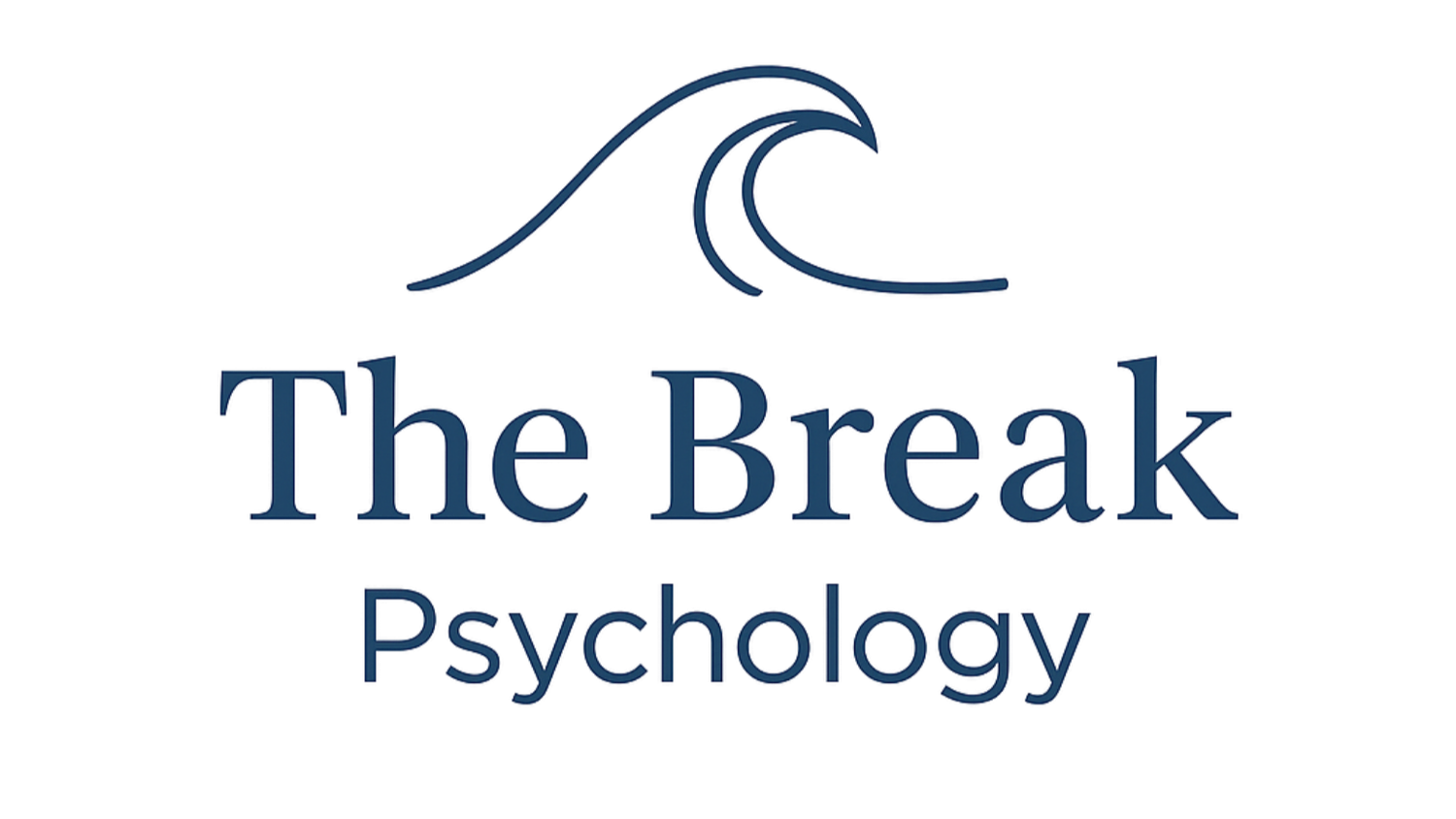Frequently Asked Questions
-
Counsellors are often the safe place to talk through life’s challenges, relationships, or stress. They listen, support, and guide.
Psychologists dig a little deeper. We’re trained to assess, diagnose, and use evidence-based therapies like CBT (Cognitive Behaviour Therapy) to help with anxiety, trauma, or mood disorders.
Psychiatrists are medical doctors. They can prescribe medication and focus more on the biological side of mental health.
You don’t have to know exactly who to see first – if you’re looking for structured therapy and strategies, a psychologist is often a great place to begin.
-
Nope. Therapy isn’t about being “broken.” It’s about being human. Anxiety, stress, relationship struggles, identity questions – these are all part of life. Therapy is like having a gym for your mind: you don’t have to wait until something’s broken to take care of it.
-
Ask yourself:
Do you feel stuck?
Are your thoughts or worries louder than you’d like?
Are you ready to try something different?
If you answered “yes” to even one of those, therapy could help. You don’t have to be in crisis to benefit.
-
The first session is a bit like meeting someone for coffee – but with more space for you. We’ll talk about what’s bringing you here, what you’d like to change, and how we can work together. After that, sessions usually focus on strategies, reflection, and sometimes uncomfortable truths – but always in a safe, supportive space.
-
That happens. Sometimes it’s about the timing, and sometimes it’s about the fit. The therapeutic relationship matters – research shows it’s one of the biggest predictors of positive outcomes. At The Break Psychology, we encourage open conversations about what’s working (and what’s not). Therapy is a collaboration, not a lecture.
-
Coaching is often future-focused: goals, performance, and motivation.
Therapy looks at both the past and present, helping you understand patterns, manage emotions, and heal.
Both are valuable, but if you’re struggling with anxiety, trauma, or mood difficulties, therapy offers a safe evidence-based framework.
-
CBT is like learning to be your own coach. It helps you notice unhelpful thoughts and behaviours, and swap them out for patterns that support your wellbeing. It’s practical, skills-based, and backed by decades of research.
-
Schema Therapy digs into the deep patterns we pick up early in life — the beliefs and cycles that keep tripping us up. It blends strategies with emotional healing, especially when you feel “stuck” in the same struggles.
-
ACT is about making space for all your feelings — even the tough ones — while staying true to your values. Instead of fighting anxiety or sadness, ACT teaches you how to live a meaningful life alongside them.
-
Mindfulness isn’t about clearing your mind. It’s about paying attention — on purpose, in the present moment, without judgment. In therapy, mindfulness helps reduce stress, improve focus, and build self-compassion.
-
DBT combines acceptance (meeting yourself where you are) with change (building healthier skills). It’s especially helpful for managing intense emotions, self-destructive patterns, and relationship struggles.
-
EMDR is a trauma-focused therapy that uses eye movements or tapping to help the brain process distressing memories. Over time, the sting of those memories lessens, giving you more freedom in the present.
-
This is the long, deep dive. It explores your past, unconscious patterns, and the roots of who you are. It takes time, but can lead to profound insights and lasting self-understanding.
-
It’s a standard therapy session held while walking side-by-side outdoors (usually along a flat coastal/park path). We use the same evidence-based approaches we’d use indoors—just with fresh air and movement.
-
Short walks in natural settings are linked with lower rumination (the “stuck on a loop” kind of thinking) and improved mood and attention. Studies show nature walks can reduce negative, self-focused thoughts, boost working memory/attention, and green-exercise generally improves mood and self-esteem.
-
Walking side-by-side can feel less intense than sitting face-to-face, which can make opening up easier. Being in green/blue spaces also supports emotion regulation and cognitive clarity.
-
We plan discreet routes and set ground rules (e.g., pausing conversation when passing others, using neutral language, or stopping briefly to let people pass). Outdoor therapy follows the same ethics as indoor work, your privacy comes first, and we complete a risk/consent process before starting.
-
If weather is unsafe or you’d prefer not to walk, we’ll switch to a standard in-room or Telehealth session that day. Routes are chosen to be accessible and you set the pace. Supportive footwear, sun protection, and water are recommended.
-
Great for clients who feel restless sitting still, find face-to-face eye contact intense, want to incorporate gentle movement, or simply feel better outside. It may not suit acute safety risks (e.g., current suicidality), significant mobility issues on the chosen route, or when strict privacy is required—your clinician will guide you.
-
Exactly the same tools we’d use indoors—e.g., CBT, ACT, grounding, behavioural activation, trauma-informed strategies—adapted for movement (think regulated breathing while walking, real-time behavioural experiments, values work with landmarks, etc.).
-
Yes. You can alternate between in-room, Telehealth, and Walk & Talk, whatever supports your goals and comfort.
-
Walk & Talk slots are limited so we can keep routes safe and unhurried. If you’re keen, let us know early so we can hold a recurring time. Either book a Walk & Talk session in the booking system or book an initial consult and mention you’re interested in Walk & Talk. We’ll complete a short consent & safety checklist, plan a route together, and start at your pace.




